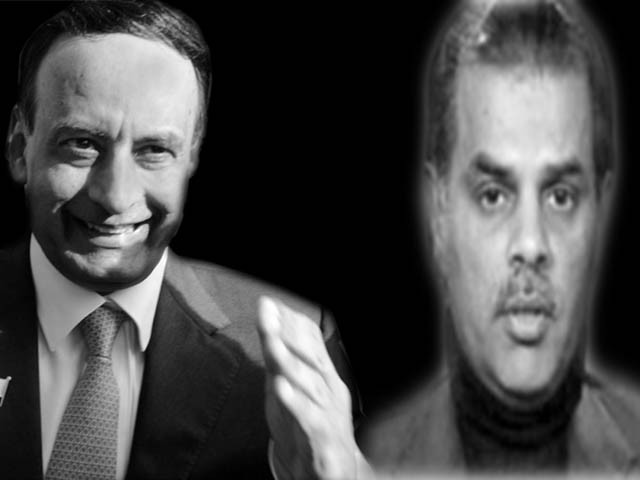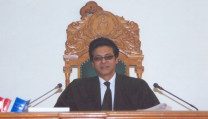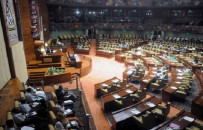Memogate: Commission pleads for more time on probe report
The panel wants to give Haqqani one last chance to record statement.

A judicial commission investigating the Memogate scandal has requested the Supreme Court to extend the deadline for submitting its probe report in order to give former ambassador Husain Haqqani a final opportunity to record his statement.
The commission asked the court for an extension of the March 31 deadline following Haqqani’s reluctance to appear before the commission. The former ambassador to Washington requested instead that his statement be recorded at the Pakistan’s High Commission in the UK.
After resuming the hearing on Monday, the commission directed the former and incumbent foreign secretaries to appear before the commission on next date of hearing along with a record of the foreign office’s correspondence with Haqqani that took place during 2011.
The commission, headed by Chief Justice of the Balochistan High Court Justice Qazi Faez Essa, adjourned the hearing for an indefinite time (date in office).
During the course of hearing on Monday, Zahid Bukhari, counsel for Haqqani, requested the commission to record his client’s statement in the UK saying that Haqqani could not return home due to security threats.
He told the commission that Haqqani’s legal representative before the Supreme Court, Asma Jehangir, had already submitted an application in this regard.
When Justice Essa asked Bokhari whether he had informed the Attorney General about the alleged security threats, he replied that he had submitted an application to the Supreme Court.
However, Deputy Attorney General IHC Tariq Mehmood Jahangiri said he did not receive any written request in this regard.
In his remarks, Justice Essa said that Haqqani was a Pakistani citizen and would, thus, have to follow the law of the land since his case was different from key witness Mansoor Ijaz, who was an American citizen.
He further said that when Haqqani appeared before the commission earlier, there were no security concerns.
Expressing bewilderment over a former ambassador’s reluctance to come to Pakistan, Justice Essa said that recording statement out of the country could set a precedent, which would lead every litigant to claim it. Akram Sheikh, counsel for Ijaz, reminded the commission that Haqqani had made a commitment to return whenever the commission needed him and requested the commission to issue an arrest warrant and initiate contempt court proceedings against Haqqani.
Malik Yasin records statement
Meanwhile, Chairman of the Jammu and Kashmir Liberation Front (JKLF) Muhammad Yasin Malik, also appeared before the commission to record his statement in response to the allegations leveled by Ijaz claiming that Malik had a meeting with the Research and Analysis Wing (RAW) chief.
Makik said that after the 1999 elections, which were boycotted by Kashmiris, he was arrested and was later given the opportunity to call the RAW chief for his release. “I did not call him and was put behind bars in Rajistan for one year,” he said.
Recalling the events which led to his meeting with Ijaz during a seminar in November 2000, Malik said that Ijaz had invited him for a lunch during which an Indian man showed up. He said that Ijaz had introduced him as a businessman but he left the meeting with the suspicion that the man was the RAW chief.
Published in The Express Tribune, March 27th, 2012.



















COMMENTS
Comments are moderated and generally will be posted if they are on-topic and not abusive.
For more information, please see our Comments FAQ